Fujitsu Futro S920, The Perfect Homelab Server
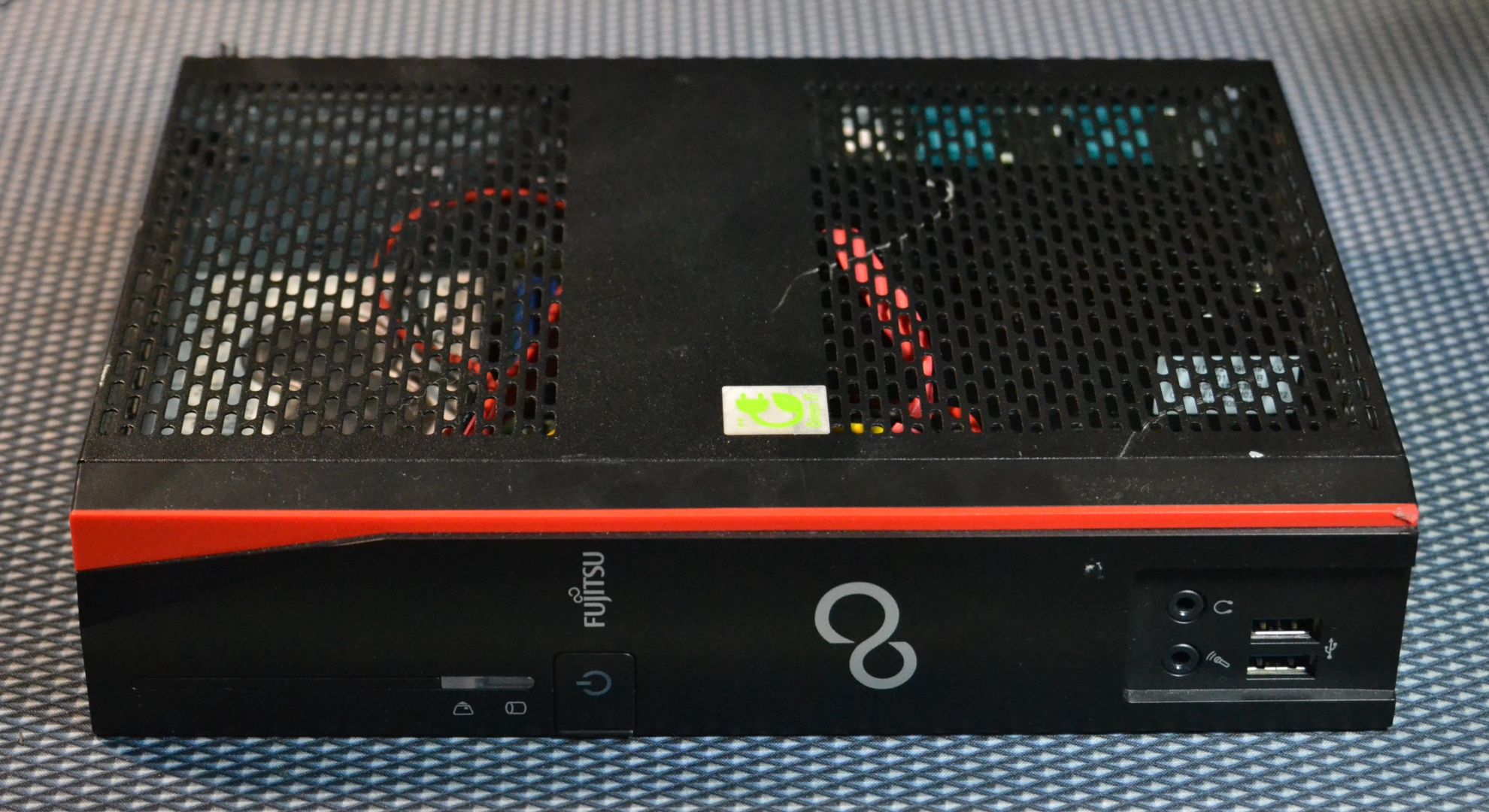
Introduction
The Fujitsu Futro S920 is a fan-less thin client that was released targeting secure server-based computing and desktop virtualization for big companies.
It was sold with Windows Embedded Standard 7 (WS7P) or eLux™ RP – Embedded Linux preinstalled on a mSATA Flash drive from 2GB up to 32GB.
This thin client uses the AMD G-Series processors family making it a great server to host webpages, HomeAssistant or any task that requires 24/7 with low CPU usage but at a really efficient power consumption.
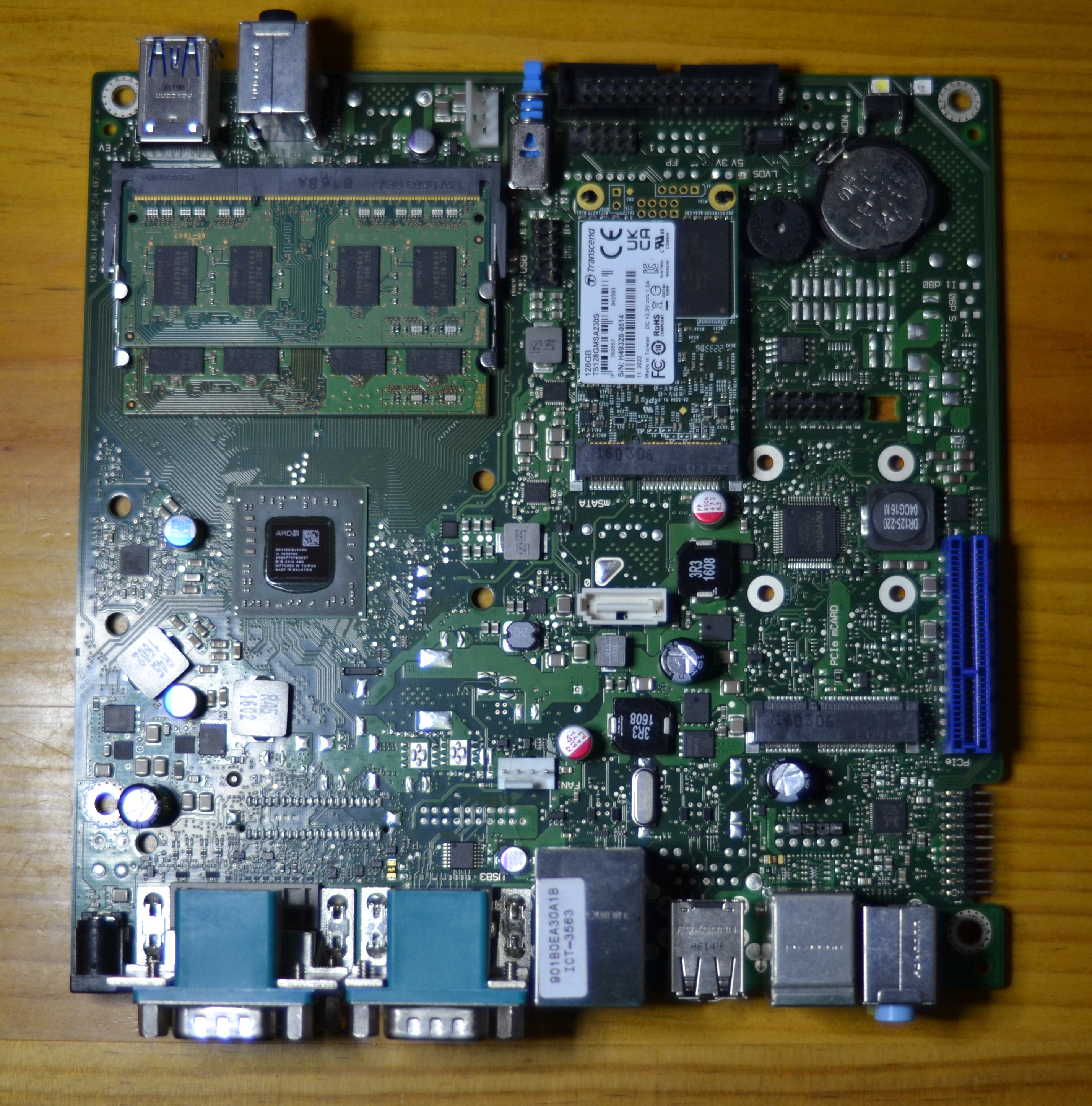
Picture of the open case.
Listing on eBay can be found here.
The total cost of the unit plus shipping averages around 45€ to 55€.
David Parkinson has an amazing site https://www.parkytowers.me.uk/thin/ dedicated to thin clients that I recommend you to read before purchasing any unit. He reviews a huge amount of thin-client and will be really useful if you aren't sure what unit to get.
CPU: AMD G-Series
All the available CPU options are x64 they have from 2 to 4 cores/threads and support all the following extensions SSE4a, SSE4.1, SSE4.2, AVX, FMA3 and FMA4. They all support AES-NI (Advanced Encryption Standard) instruction set allowing efficient encryption and decryption operations ideal for router appliances.
The CPUs also support AMD-V (AMD virtualization) making ProxmoxVE a viable option to virtualize several OS.
The AMD G-Series processor include a graphic solution. Those AMD include compute units which have texture shaders while being not enough to play games it will boost desktop performance and video playback.
The GX-415GA where released back in Q2/2013 meaning these CPUs are quite old and will lack newly instructions set. This will become an issue if you want to run MongoDB being the version 4.4 the latest available due to instructions set issues.
For encoding capabilities only JPEG encoding is supported while h264, AVC, VC-1 and JPEG decoding is available. While the decoding and encoding capabilities are limited the unit has a
PCIe port that can fit a low profile GPU.
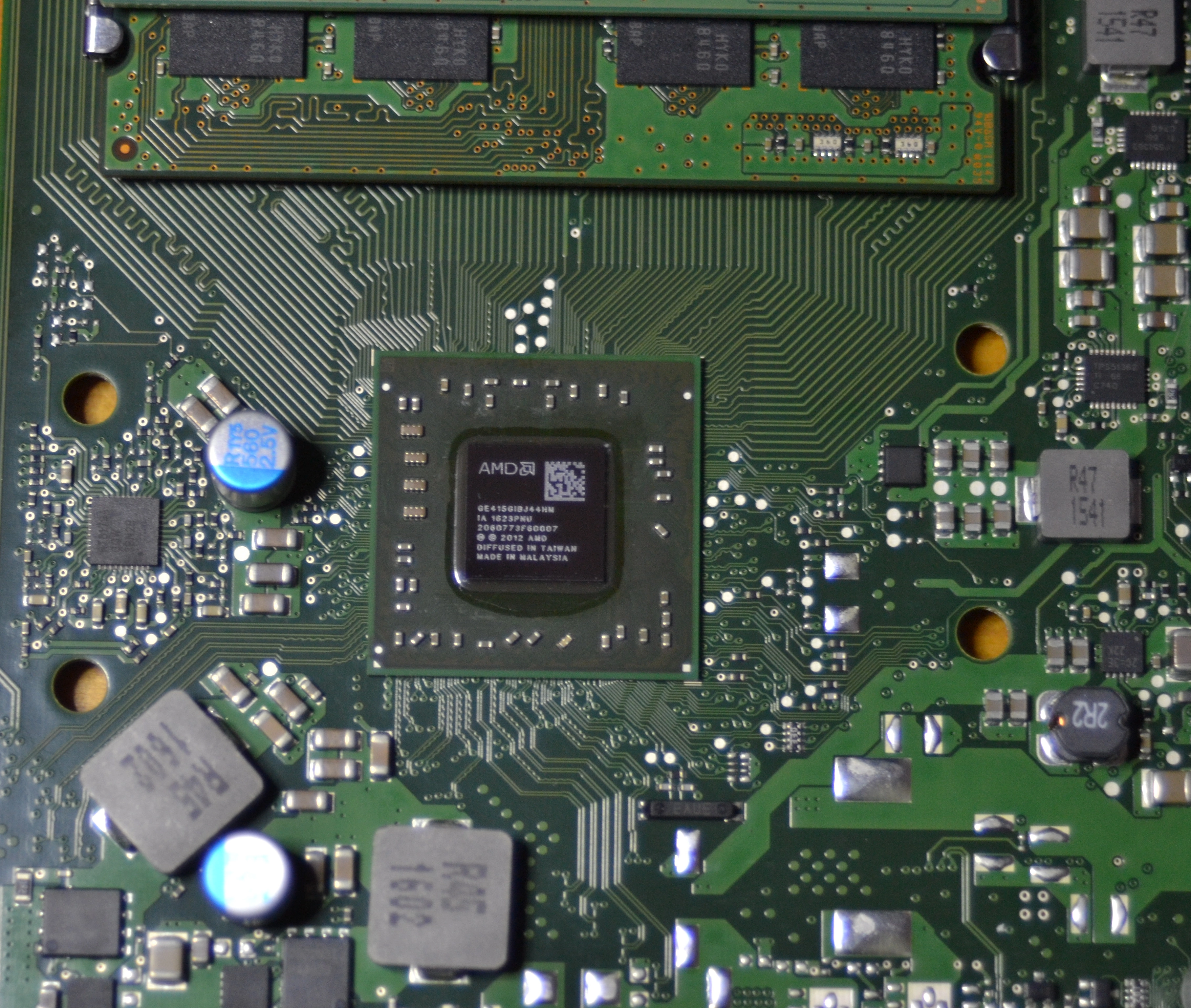
Picture of the open case.
The processor is soldered directly to the motherboard so if you want to purchase specific CPU you will have to search on ebay the according thin-client.
This thin client has three available AMD G-Series processor options:
| Name | Frequency | Nº Cores | Cache | Graphics | Consumption |
|---|---|---|---|---|---|
| GX-415GA | 1.50 GHz | Quad Core | 2 MB | AMD Radeon™ HD 8330E | 15W |
| GX-424CC | 2.40 GHz | Quad Core | 2 MB | AMD Radeon™ R5E | 25W |
| GX-222GC | 2.20 GHz, up to 2.4 GHz | Dual Core | 1 MB | AMD Radeon™ R5E | 15W |
You can find a product brif of the AMD G-Series family here.
RAM
Any of the CPU versions of the unit will only allow a maximum of 16GB of RAM (Random-access memory), with all being single channel.
While the GX-424CC CPU will handle DDR3-1866 the other two CPUs will only handle DDR3-1600 meaning any faster RAM won't end in a performance increase.
All the CPUs support ECC memory (Error Correction Code memory).
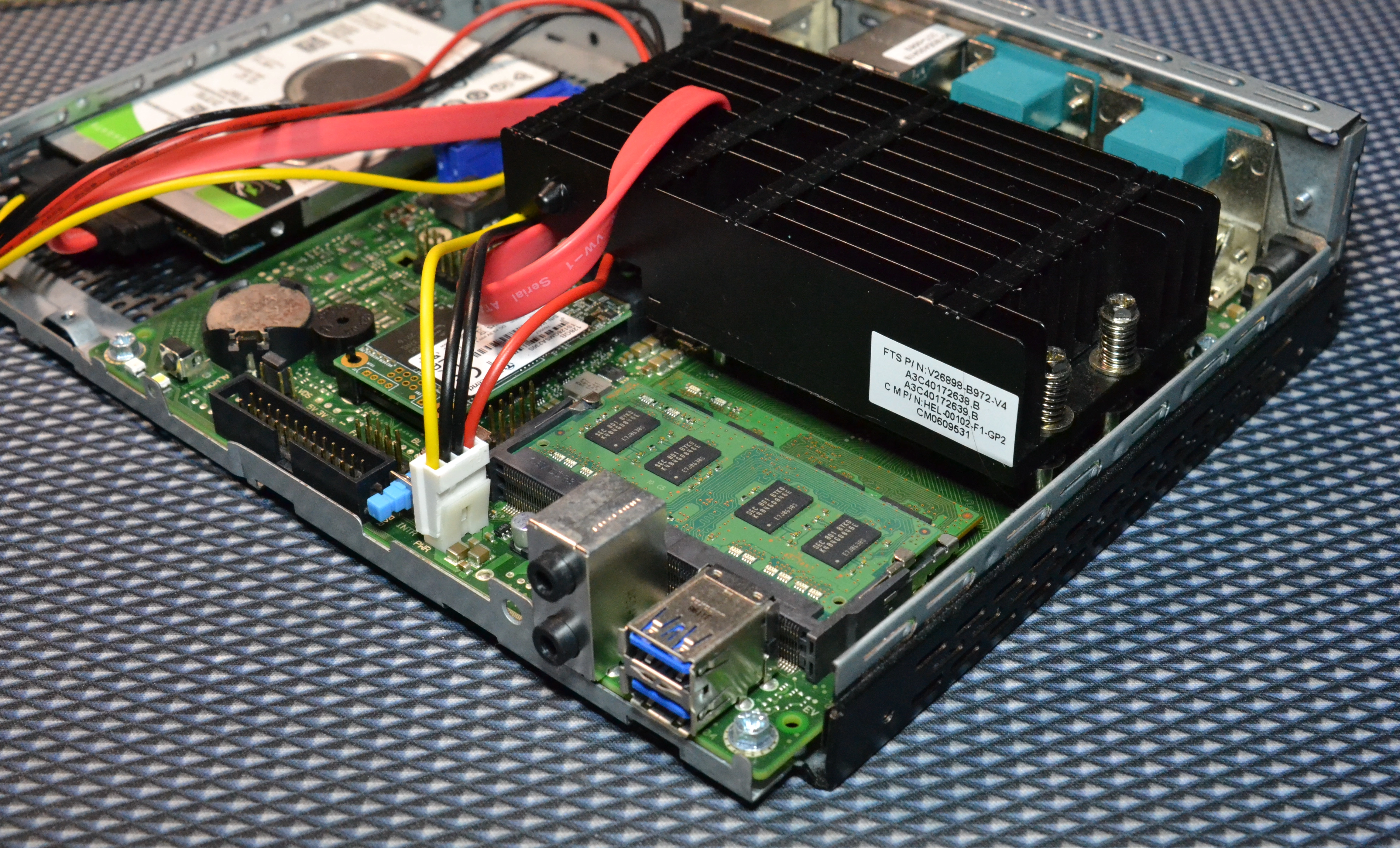
Memory slots next to the CPU heatsink.
ROM
For the storage options the unit has a mSATA port and a SATA port under the heatsink of the CPU. The most limiting factor of the mSATA port is the price of the different memory sizes and the limited brands selling this kind of memory.
Next to the ram slot we can find a PWR connector to power an HDD or SSD allowing the unit to have a main storage and a secondary storage with way better capacity per €
If we need more storage than the 2 available the mPCIe or the PCIe port must be sacrificed to add an adapter to SATA ports, M.2 drives or even an HBA card to connect to an external disk array.
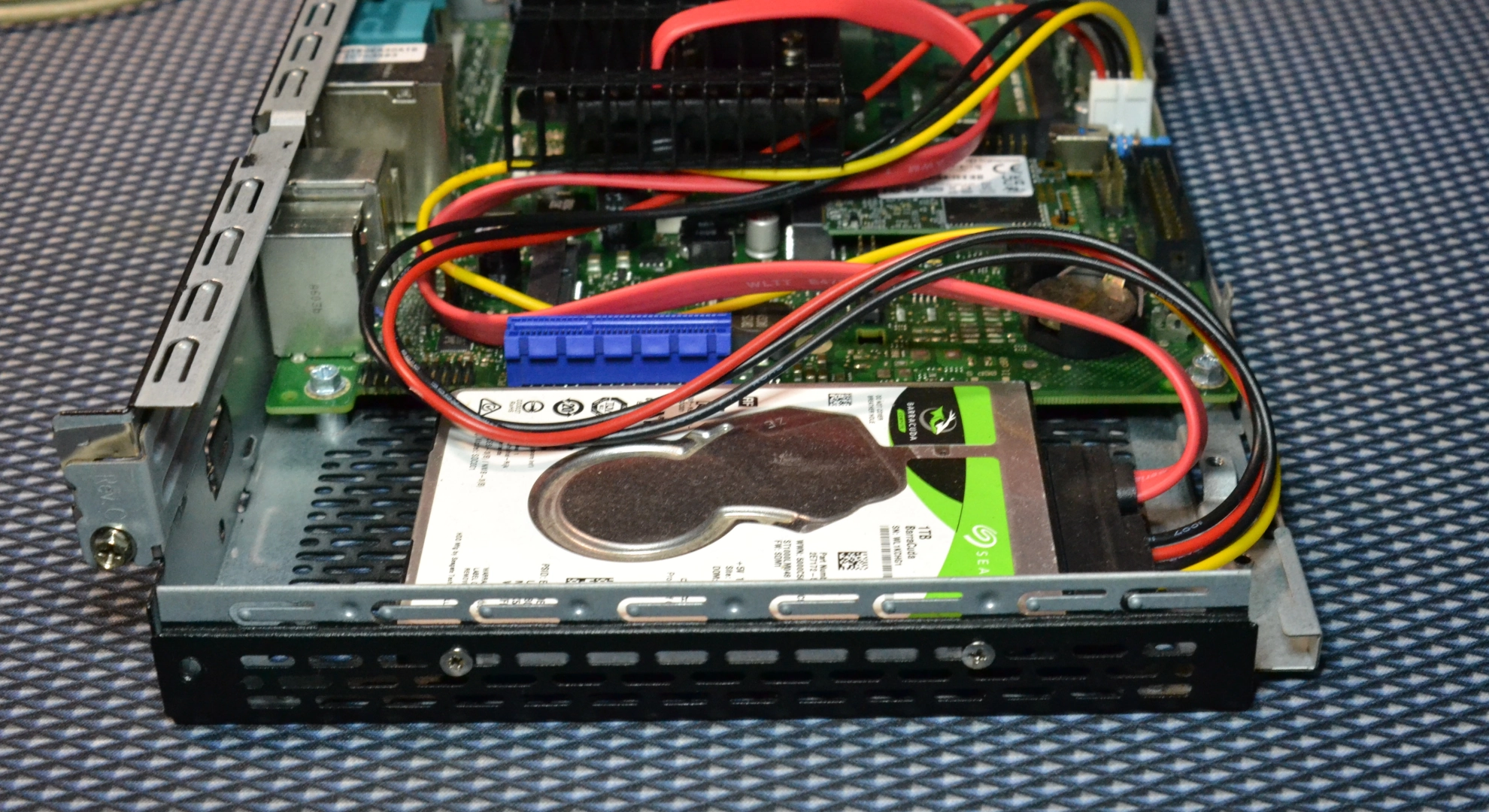
Hard drive under the PCIe port
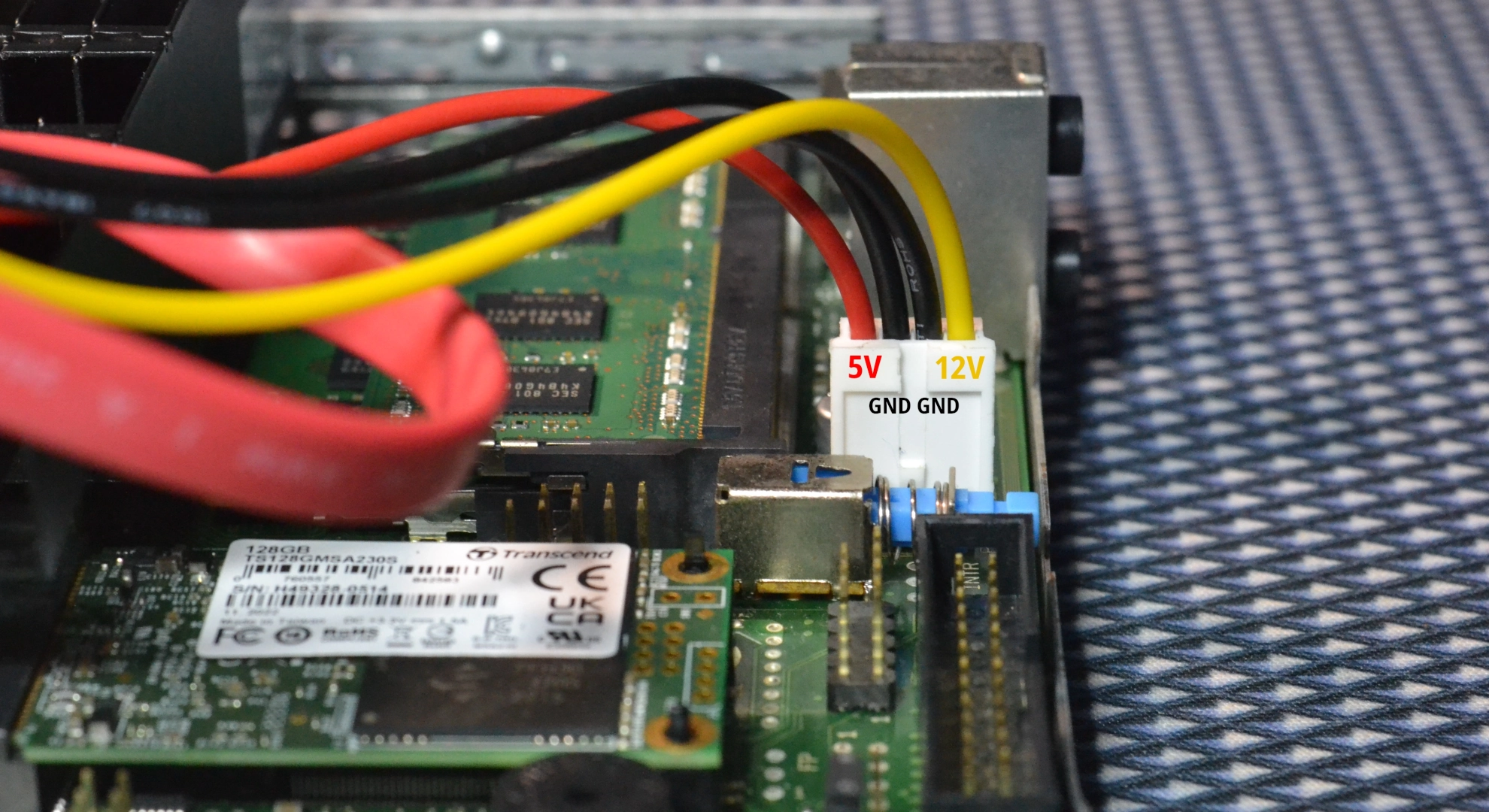
Hard drive power connector
GPU
The GPU embedded in the CPUs are really limited and only allow for desktop and video playback. While the GX-415GA option offers the best computing performance it still is really limited. For this reason Fujitsu offered the unit to be expanded with an AMD FirePro™ W2100, 2 GB.
This has not been tested.
It could be interesting to load a Nvidia TESLA P4(additional fan needed) or a Nvidia Quadro P620 to enable for example Emby transcoding on the GPU because AMD transcoding options are really limited and underperform any Nvidia GPU.
Additionally, adding a GPU will make the unit noisy.
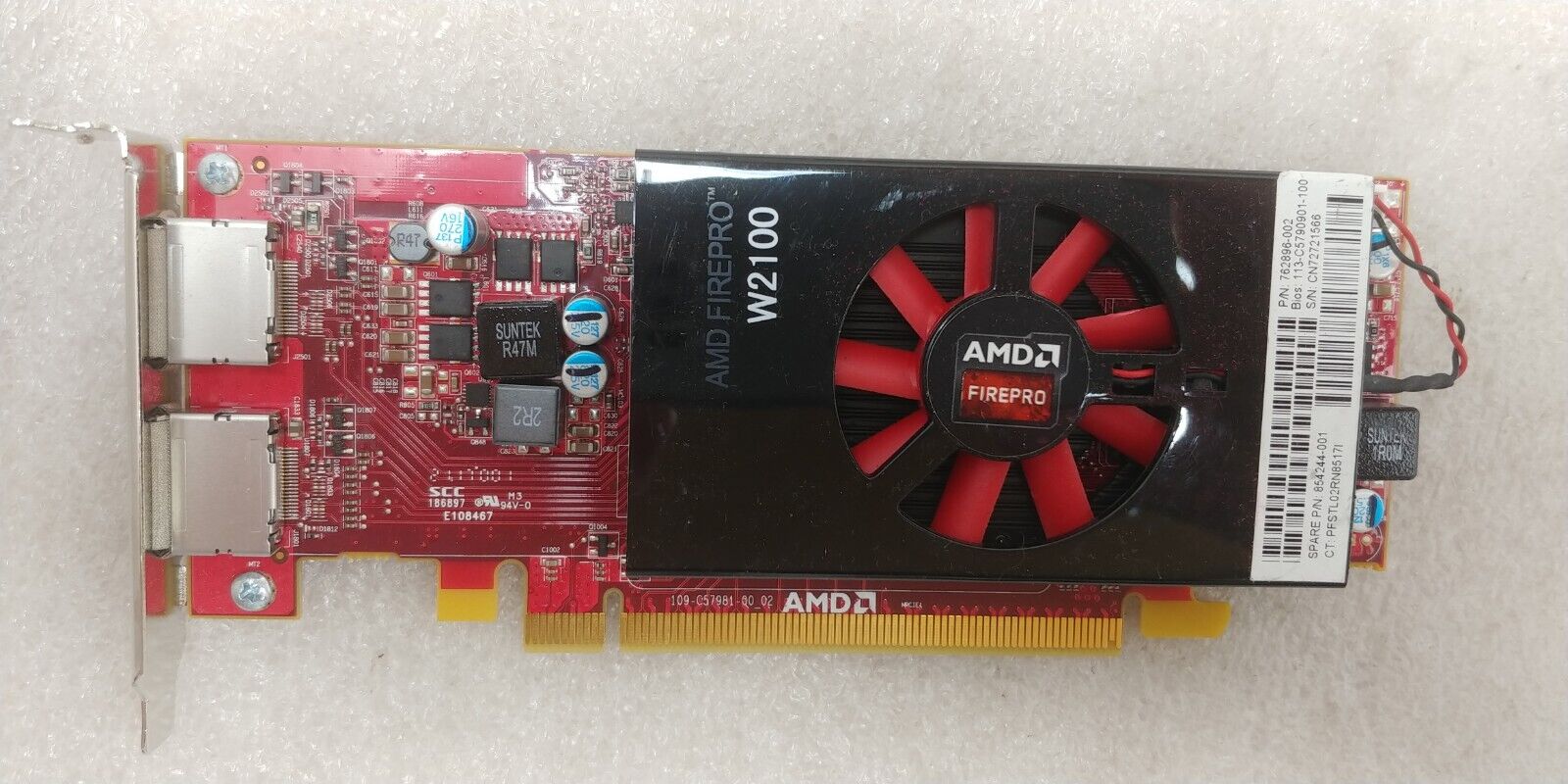
GPU option sold as en extra.
PCIe
The thin-client comes with a PCI-Express port x4 (mech x16). It can only fit low profile cards, and it is limited at version 1.0 of the protocol. This limits the transfer rate to 2.5 GT/s and the Throughput to 1.0 GB/s.
To serve the port with a pcie card a riser will be required, I personally recommend a flexible one because the original is really hard to find.
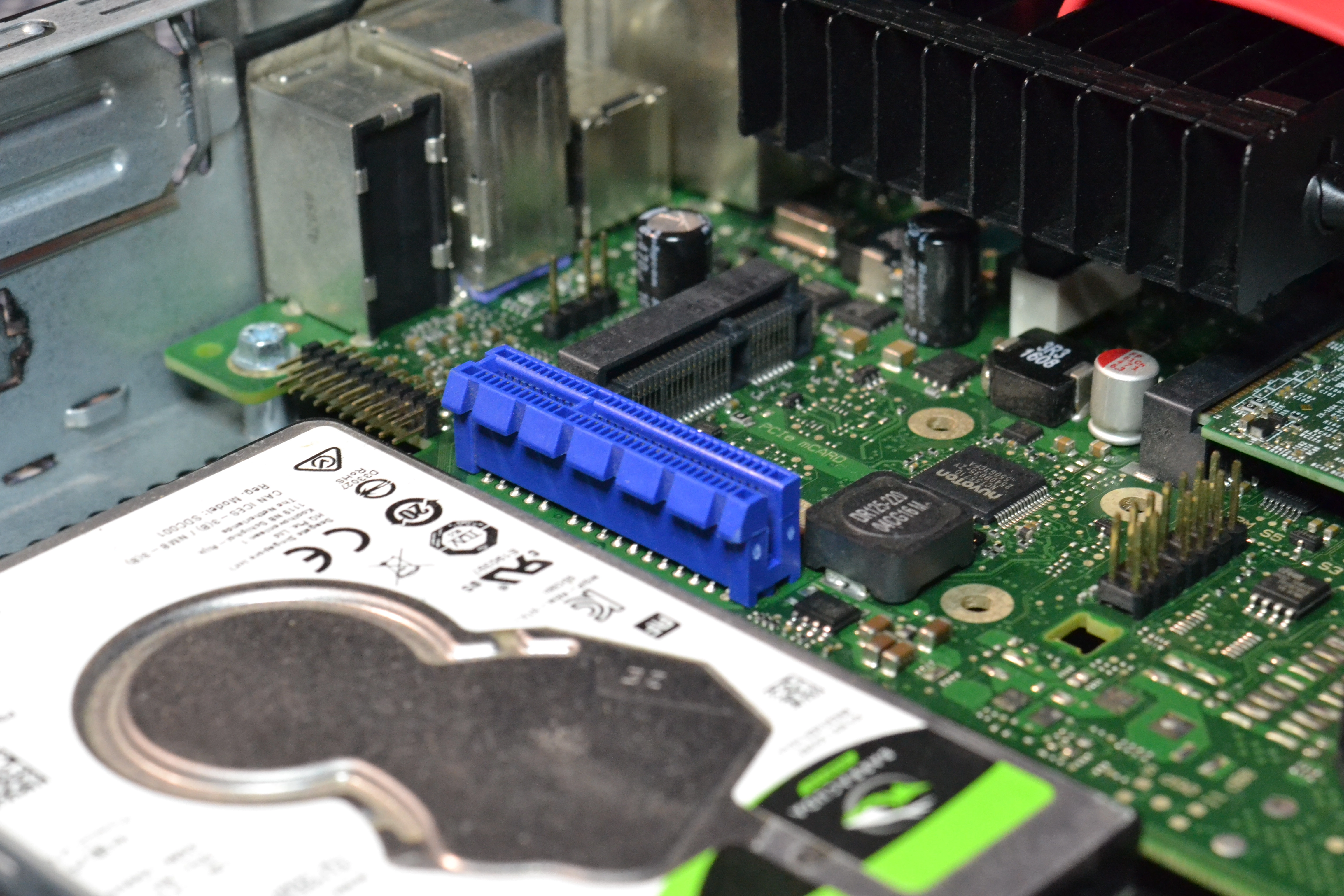
x4 PCIe 1.0 port
The PCIe will be a bottleneck on the quantity of data transferred in most of the cards used.
Although that the all the CPU variants support PCIe version 2.0 at 5.0 GT/s with a throughput of 4.0 GB/s it is capped at a bios level and no option is available in it.
Fortunately at Server-The-Home several users managed to change it to version 2.0, the link can be found here.
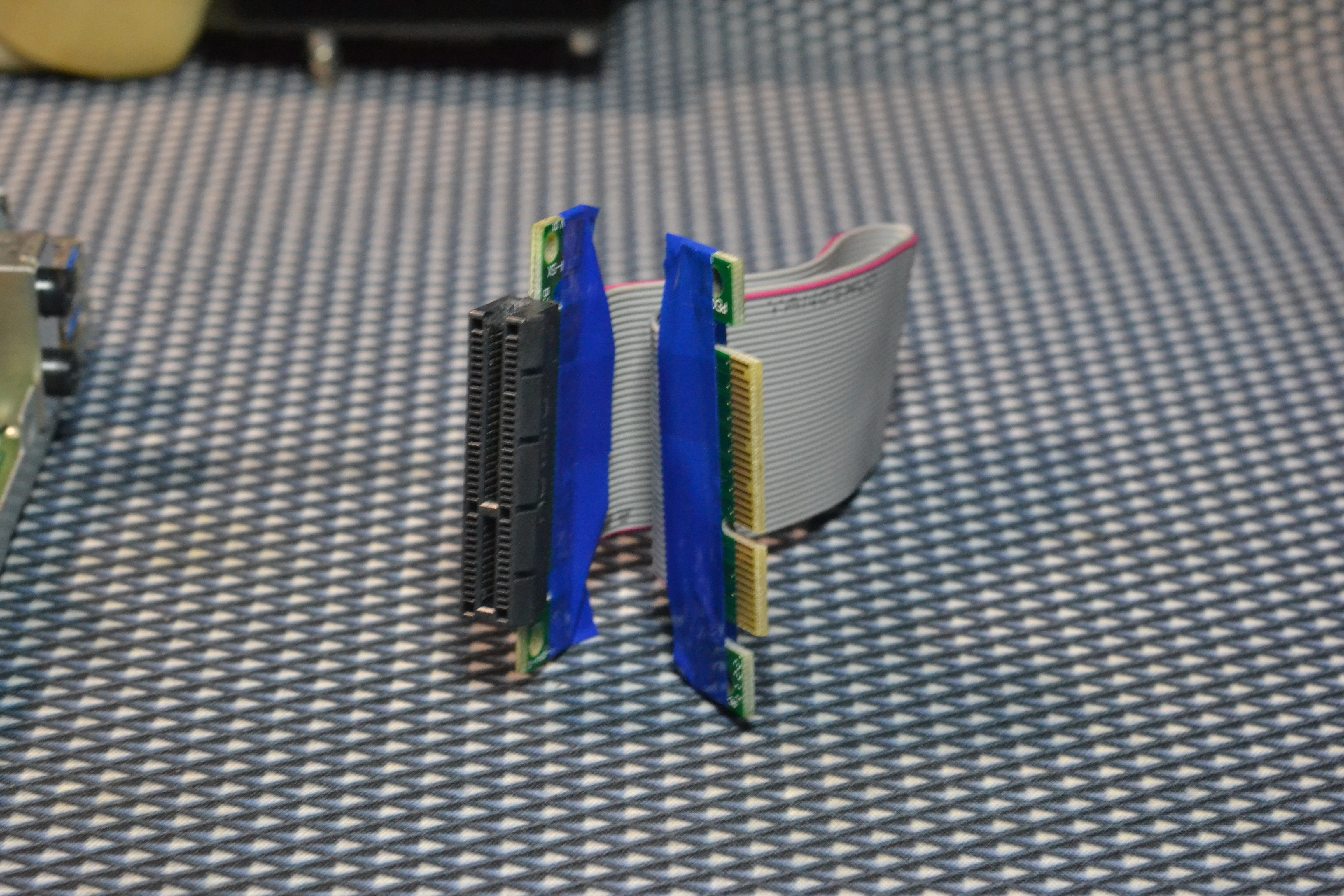
PCIe port expander
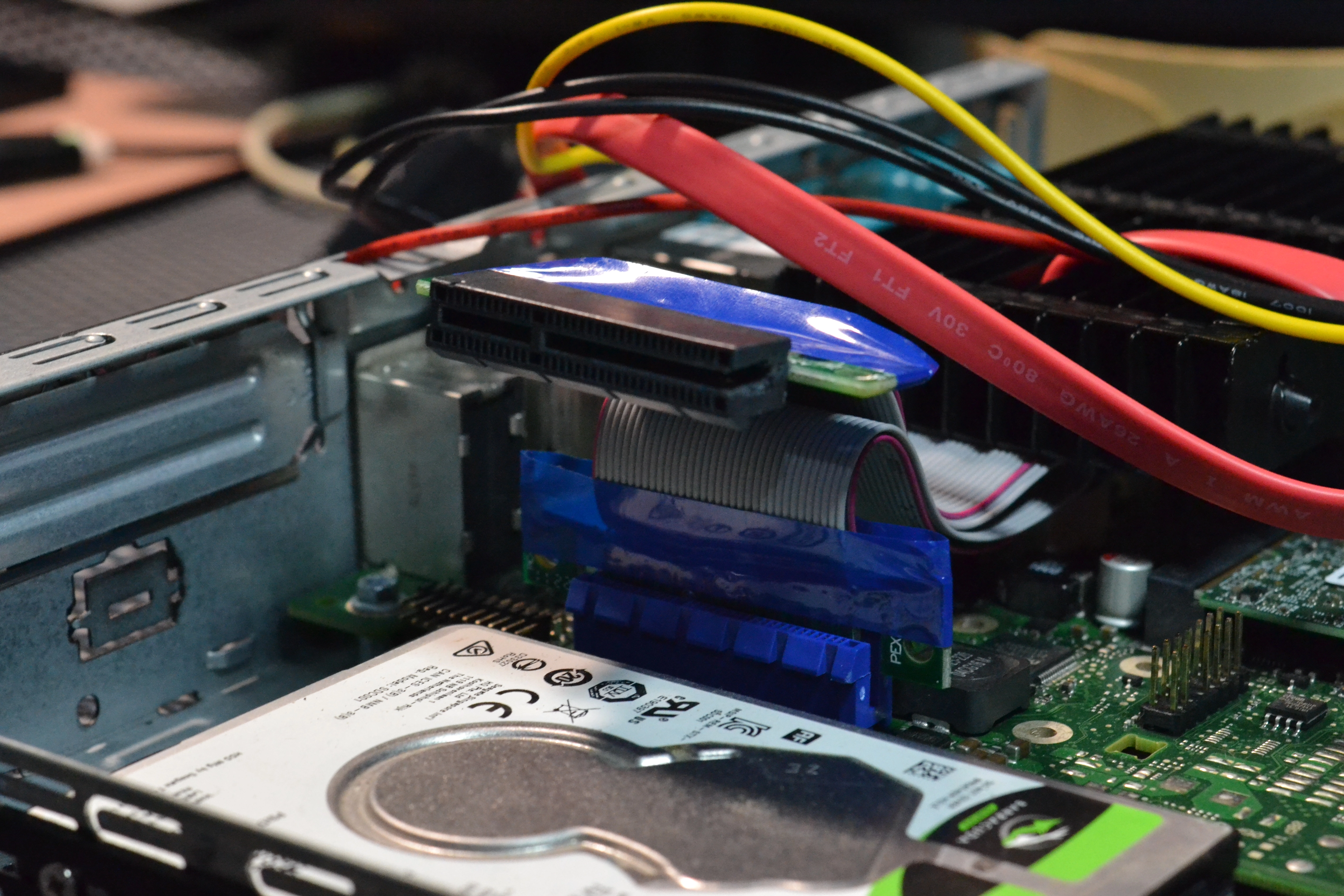
PCIe port expander installed
mPCIe
The D3313 motherboards includes a Mini PCIe port. This port uses Version 1.0 and is locked at 2.5GT/s unless you apply the trick mentioned above to set the version to 2.0.
This port can be used to add a Wi-Fi and/or Bluetooth card, Mobile networks to have a redundant link, internal USB port or add more SATA ports for more hard drives.
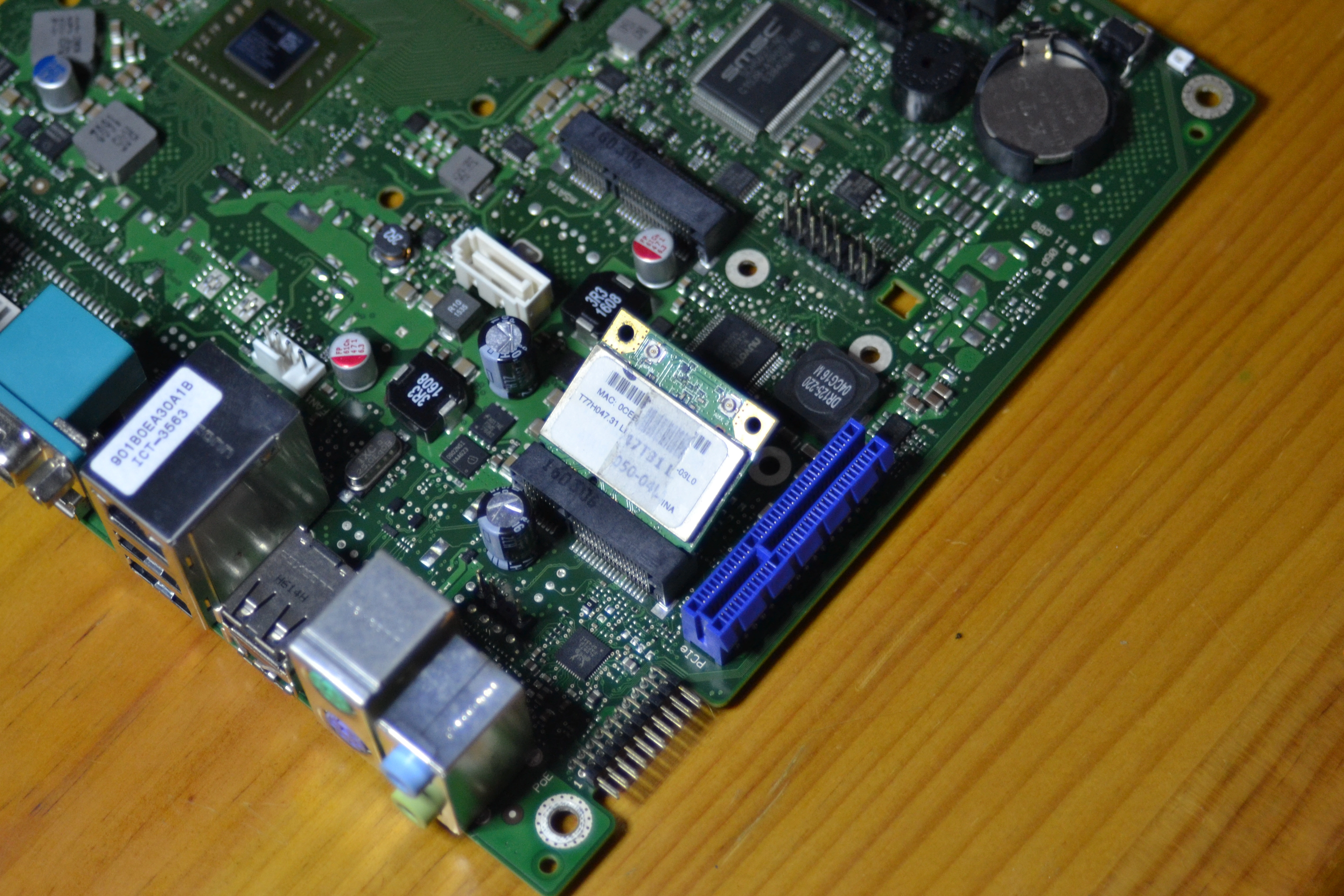
Mini PCIe port filled with a 2.4GHz Wi-Fi card.
PoE
Finally, this unit can be powered using PoE (Power over Ethernet) the connector can be found before the PCIe port and on the case there is a network port prepared to fit in.
Unfortunately this card is really rare and pricey compared to the thin-client cost.
On GitHug the user Krysio has a repository with the pin-out of the connector GitHub.
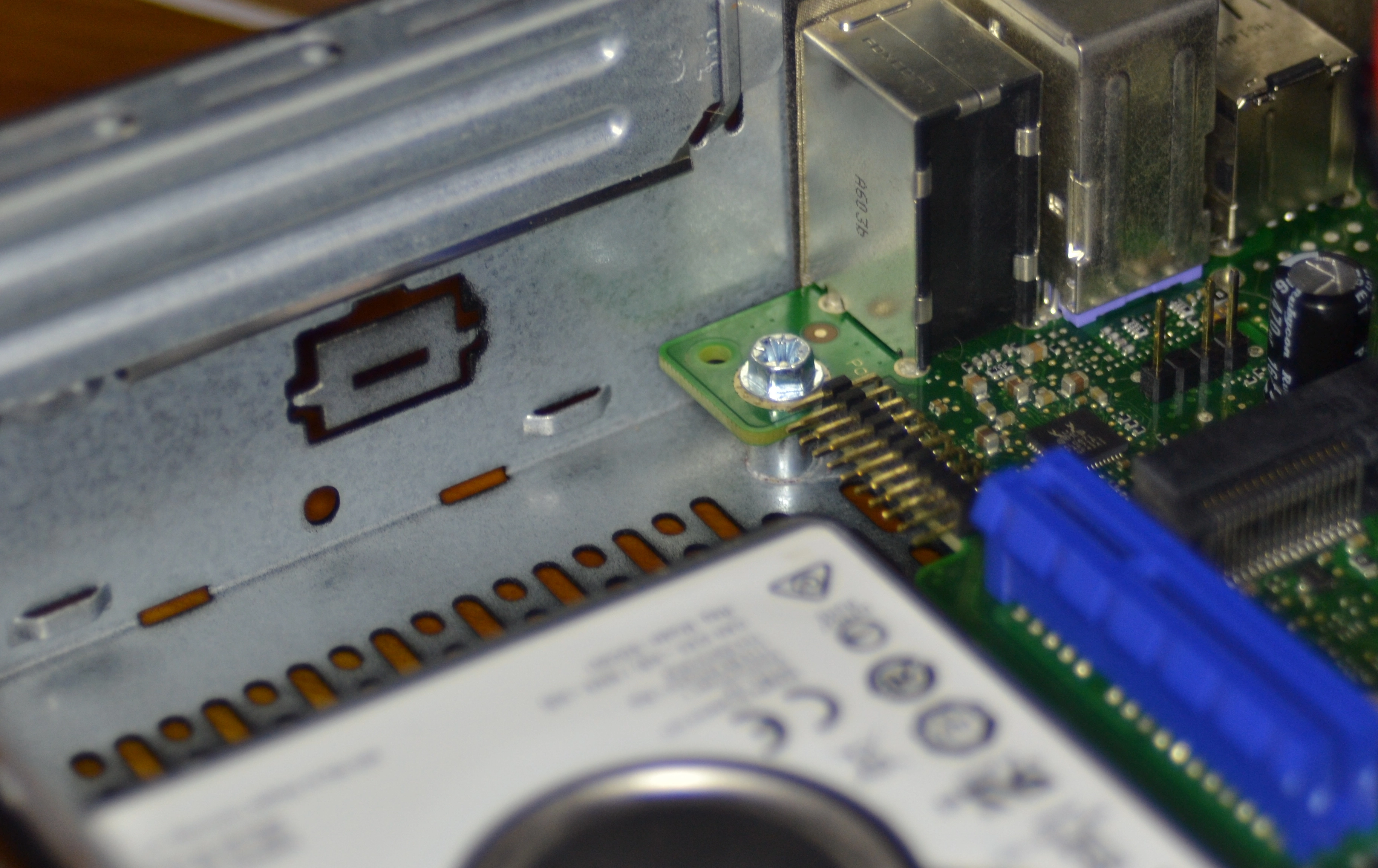
PoE port on the motherboard
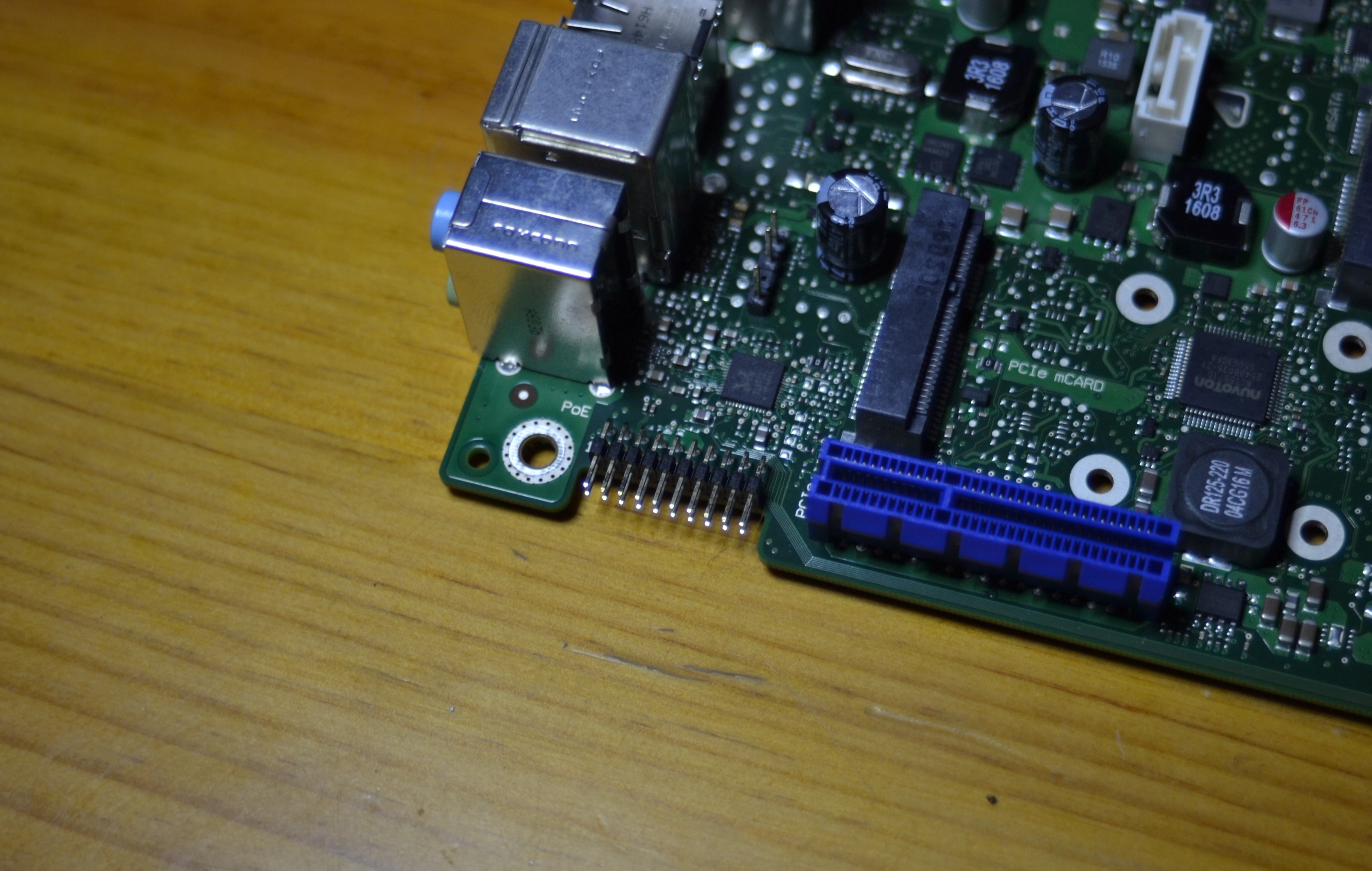
PoE port on the motherboard
Power Consumption
The fujitsu Futro S920 is powered using a 19-20V DC jack. The average consumption ranges from 8 Watts to 12 Watts. The unit can peak up to 17 Watts.
This consumption is really low, you could go lower using a raspberry pi but on this system you can run Proxmox and have multiple OS virtualized while on the raspberry at the date of writing only custom-builds can be used.
Additionally, there is a huge amount of ports and expansion available.
Best Usage
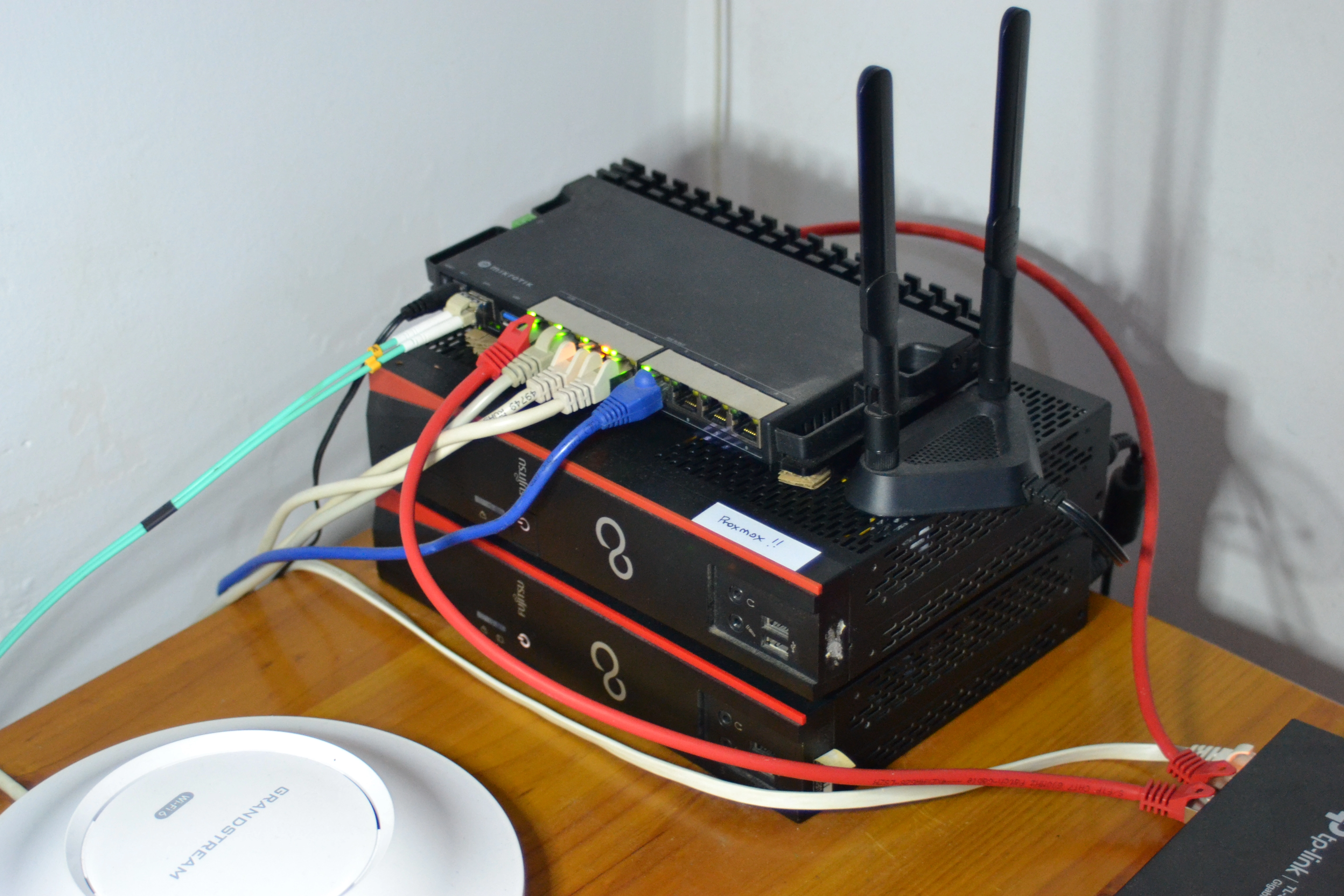
Proxmox VE cluster
I used this unit as OPNsense firewall using an Intel i350-T4 Ethernet Adapter but the performance of Suricata given the limitations of the CPU and the PCIe it really limits the output of the machine. If you want to setup OpenVPN the CPU will really by a limiting factor but to stream movies from your Emby media server to the client it will do the work.
The machine has also been used as a simple Debian with Emby using a 1 Tb hard drive to serve streaming content to the clients and most encodings will perform great as the encoding will be done on the client or the cpu will handle the load but don't ask the CPU to transcode certain qualities or the stream will buffer frame after frame.
The fact that you are reading this on this desert page means the machine is perfectly capable to host a webpage server. Don't expect a lot of concurrent users, but for this site it never has been a problem.
ProxmoxVE is another really powerful option, and the one I recommend you. You can virtualize the firewall, serve the VMs with nginx and the machine will mostly stay at a Load average 0.59,0.50,0.42
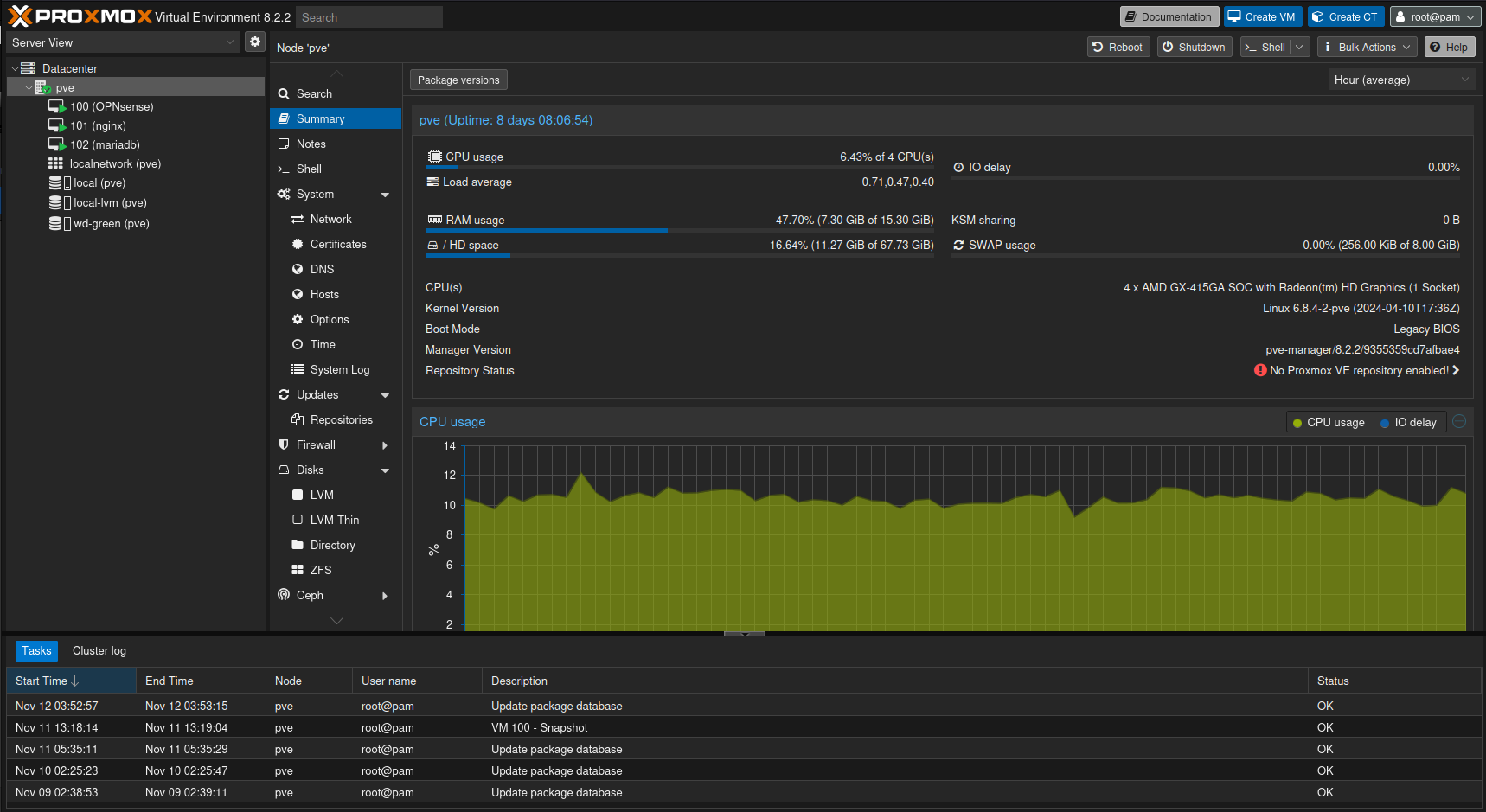
PVE server load hosting OPNsense inside the Fujitsu
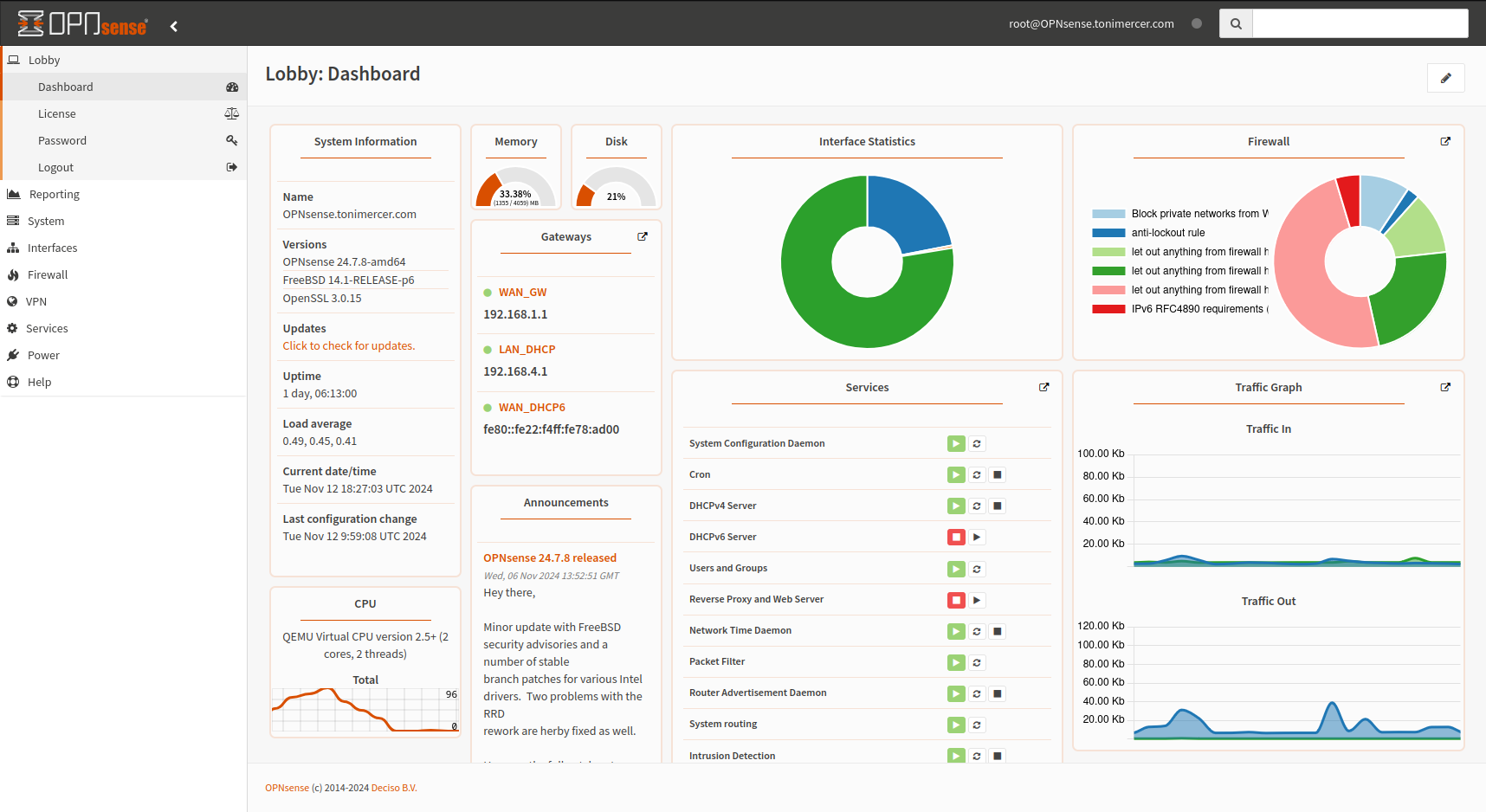
virtual OPNsense dashboard
If you spot any typos, have questions, or need assistance with the build, feel free to contact me at: antonimercer@lthjournal.com
This guide contains no affiliate links or ads. If you'd like to support this or future projects, you can do so here:
By supporting monthly you will help me create awesome guides and improve current ones.
Hardware datasheets
Technologies used
Linux, Debian12, ProxmoxVE, Fujitsu Futro